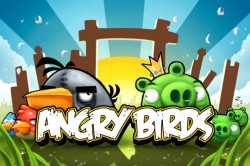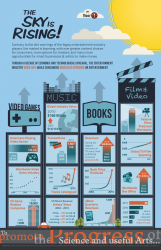Weekly News Roundup (5 February 2012)
Welcome to another edition of the Weekly News Roundup. So nearly 7 days and 25 more hours of Skyrim later, I have come to one conclusion: Skyrim is horribly, terribly, addictive! Which is just as well, as it hasn’t exactly been a busy news week (it’s funny how the slow news weeks always coincides with weeks in which I’ve been pre-occupied with other stuff).

We start with some disappointing news. Last week, a petition was set up on the White House’s own petition website asking for MPAA’s chairman, Chris Dodd, to be investigated for bribery after the former Senator’s controversial statements (Dodd has threatened to stop writing cheques for politicians who dared to oppose SOPA, live on Fox News).
With the petition getting the required number of signatures to warrant a White House response, in only a week, everyone was waiting to see what the response would be. Unfortunately, the White House’s early response was not what everyone was hoping for. The White House’s only response was a refusal to comment because the petition “requests a specific law enforcement action”, and the site’s policy wouldn’t allow that. So unless someone can reword the petition as to not request a specific law enforcement action, but merely to seek comments on whether it is acceptable for the head of an influential lobby group to be making these kinds of statements, the White House, and Dodd, looks to be spared of public embarrassment on a technicality.
With most of focus these past few months on the appropriateness, or inappropriateness, of the legal solutions to the web piracy problem, perhaps one key point has been forgotten: has piracy actually hurt the industries that are spending millions to lobby for the new laws? Even some of the key anti-SOPA campaigners often stress the need to take action against the web piracy problem (just not agreeing with SOPA/PIPA), but if you look at the creative landscape today, and the business opportunities all around, are things really that bad?
And this is exactly what a new report (or infographic for those that don’t want to read), titled The Sky is Rising, is looking into – the actual impact that a decade of web piracy has had on the creative industries – books, video games, movies and of course, music. And the results may be surprising, at least to those calling for tougher action on the web piracy “problem” with the aim of protecting the “incentives” for creativity. But far from the doom and gloom that the lobbyist have been telling politicians, it seems this has been a decade *for* creativity. More books are being produced than ever (not a surprising conclusion, thanks to online services that now allow anyone to sell their books), and thanks to services like iTunes and Netflix, the average consumer can get access to more movies, TV shows and music than ever possible. Even the video game boom of the 2000’s has somehow managed surpassed the great video game boom of the 80’s and 90’s, if not in quality of games (Skyrim and a few others excepted), than at least in quantity and revenue. Smartphones have revolutionized the way software is sold through small, cheap apps that almost any developer can publish and profit from (yours truly included) , and thanks to the Humble and other bundles (and Steam), the indie game industry have never had it better. And then there’s YouTube, and the hours upon hours of original videos that are uploaded every second to the site. Of course, a lot of the benefits from this particular boom time has not benefited the traditional gatekeepers of content, your major movie studios and music labels. Which is not necessarily a bad thing. To say that what’s bad for your Universal’s would be equally bad for the artists that continue to create, would be at the very least simplifying the issue at hand, if not an outright lie.
Now, I wouldn’t go as far as saying that web piracy has enabled all of this. In my opinion, web piracy provides benefits to creativity, by allowing content to be consumed by more people than ever, but it does have a negative financial impact too. But to cripple the Internet and to use drastic measures to attempt (but ultimately fail) to solve the web piracy problem, may end up hurting creativity, and providing little if any financial gains. Internet based platforms that empower individuals to publish original content may very well be the ones hurt most by draconian copyright laws, and so solutions that herald themselves as saviours of creativity, may become its worst enemy. The strange thing is that if this happens, if creativity on the Internet is killed off by the likes of SOPA and PIPA, it’s the traditional gatekeepers that may be the beneficiaries, despite not having actually stopped the web piracy problem. And maybe this is what they were hoping for all along.
It’s always worth remembering that the main principle behind copyright is not to protect profits, and certainly not the profits of license holders and gatekeepers who are usually not the creators of content. Copyright has always been about protecting innovation, the public’s need to be able to participate in cultural and informational exchange, and the encouragement of creativity. And the Internet, even including the unsavoury elements, have largely helped this cause, even if the likes of Sony and EMI have not been the primary beneficiaries of these changing times.
And so this brings us to two stories that somehow bring together the odd pairing of Neil Young and Angry Birds, but both carrying the same message, that maybe the positive effects of piracy can outweigh the negative effects. Neil Young spoke at the D: Dive into Media conference about the effects of web music piracy, and it appears the the music legend is not at all concerned (and more worried about the poor quality of said illegal downloads, than anything else). Young theorizes that web piracy is basically the new radio, a new way for music lovers to listen to new songs for free, and a great way for musicians to promote their new music. There are parallels in history that supports Young’s theory, in that the music industry was very much up in arms against radio when it was first introduced, just like they were up in arms about people making mixtapes when cassette tapes was first available. The technology may be new, but the music industry’s response isn’t.
Before web piracy, the choice for someone may have been to consume (listen, play, read, watch …), or to not consume – based on what they can afford, and what they think they like. Promotional activities back then were all about getting people to choose to consume, and these promotions usually involved a huge financial cost to buy air time, ads, generate hype and the like.
In the Internet era, and thanks to piracy, consumers now longer have to make this sacrifice – they can get it for free, if they can’t afford it, and if they hear bad reviews about something, they can still check it out without the need to be an idiot and pay for it. And promotions and hype are generated organically as a result, for good stuff, or stuff so bad that it becomes good.
But my point would be that as long as people are still spending money and spending more every year (and by all accounts, courtesy of The Sky Is Rising report, this has been the trend), then does it really matter how much they’re getting for free? Or rather, it does matter, because this is perhaps when piracy actually becomes a discovery tool, helping people to discover things they never thought they would like, and eventually encouraging them to spend money on things they never thought they would.

Angry Birds developer says piracy isn't a problem as long as it helps build the brand and win over fans
And if publishers really want to get pragmatic about web piracy, then it should all be about weighing the positives against the negatives, the potential loss of short term revenue, versus the potential discoveries made by people that probably never intended to buy – in other words, does it help to build the brand? And according to the developers of Angry Birds, Rovio, this is exactly why piracy may be helpful. Rovio’s chief executive Mikael Hed makes a great point about differentiating between “customer” and “fan”. A fan may not have been a customer (thanks to piracy), but it does not mean they won’t be a customer in the future. And similarly, just because someone buys something and become a customer, it doesn’t mean they will continue to be one if you put out inferior product after inferior product, all glued together by a botched DRM, for example. And Hed concludes that by growing the fanbase, even if some of it is done via piracy, will help to grow the business. Lose those fans, through ridiculous pricing, DRM, attempts to coerce legislators into passing new draconian laws, and see you business crumble.
Hed does mention that Rovio learnt a lot from the music industry about what *not* to do in regards to piracy, but I think maybe there’s another company that’s more closely related to what Rovio does, that they can also “learn” from. Ubisoft will next week put on a public demonstration of just why their DRM sucks and sucks so hard, as the company’s planned move of web services from a third party provider, to their own infrastructure, will mean a lot of their games, including single player ones, won’t be available during the transition. Almost all of their online based games will be affected, and half a dozen games, including Assassin’s Creed, Splinter Cell Conviction and Tom Clancy’s H.A.W.X. 2, will be totally unplayable, online or offline, thanks to the DRM requirements.
So not only were Ubisoft short-sighted to not see the need, from the get go, to have their own web service infrastructure despite the overuse of web based DRM, they apparently does not possess the technical knowhow to offer a smooth, disruption free, transition either. If this is what a planned outage is like, I would hate to see the kind of damage an unplanned outage can do – even Amazon took a week to completely fix their cloud services outage last year, and they actually knew what they were doing. As expected, people with pirated versions won’t be affected at all – has there been a game company that has done more to promote piracy than Ubisoft? The Pirate Bay should give them an award or something …
Unfortunately, talking about games has only made me think of Skyrim, and I’m afraid I will need my fix again pretty soon. So on that note, see you next week.


February 11th, 2012 at 7:00 am
Awesome news roundup, thanks for post. 🙂